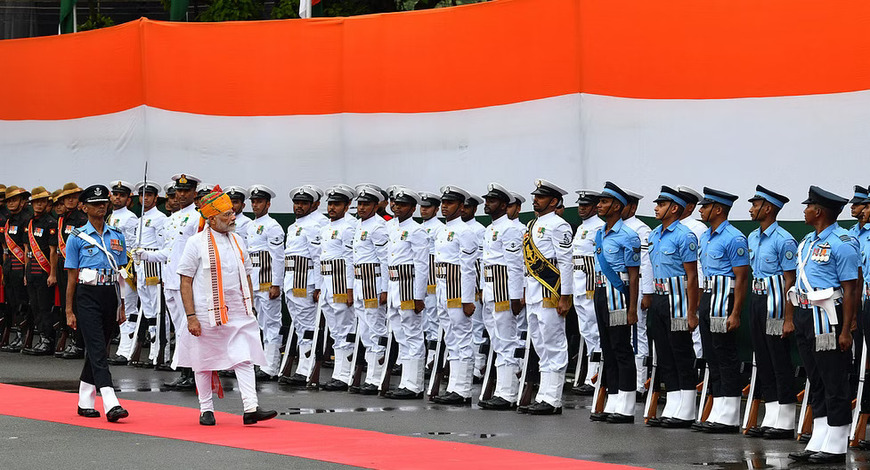LS conducts business even as the Opposition continues to protest
Context
Rajnath Singh, the minister of defence who proposed the Inter-Services Organizations (Command, Control and Discipline) Bill, 2023 for discussion and approval, asked the chair to let him speak from a different seat because he was frequently interrupted. Then he began to speak from one of the back benches’ seats.
What is Inter-services Organisations (Command, Control and Discipline) Bill, 2023?
- Definition of Inter-Services Organization: According to the Bill, existing Inter-Services Organizations like the National Defense Academy, the Defense Space Agency, and the Andaman and Nicobar Command are considered to have been formed per its provisions. The national government may also create brand-new Inter-Services Organizations with members from at least two of the Army, navy, and air force. These organizations, which may include a Joint Services Command that is under the command of a Commander-in-Chief, may be placed under the command of an Officer-in-Command.
- Empowerment of the Commander-in-Chief/Officer-in-Command: At present, the Commander-in-Chief or Officer-in-Command of Inter-Services Organizations lacks the power to impose disciplinary measures or other forms of administrative supervision on members of other services. The Inter-Services Organization’s personnel will be under these individuals’ direction and supervision thanks to the Bill. They will be in charge of upholding order and making sure that service members are carrying out their responsibilities properly.
- Central Government Superintendence: The central government will have oversight of the Inter-Services Organizations. It has the authority to provide these organizations with instructions on issues about public interest, general administration, or matters of national security.
- Applicability to other Forces: Any force established and maintained in India may receive a notification from the central government stating that the Bill’s provisions will apply to them. This indicates that in addition to members of the army, navy, and air force, other central government forces may also be subject to this legislation.
- Eligibility and powers of commander in chief: Officers must hold the rank of General Officer of the regular Army (above the rank of Brigadier), Flag Officer of the Navy (rank of Admiral of the Fleet, Admiral, Vice-Admiral, or Rear-Admiral), or Air Officer of the Air Force (above the rank of group captain) to be eligible to be appointed as the Commander-in-Chief or Officer-in-Command.
- Powers and Duties of the Commander-in-Chief: The appointed Commander-in-Chief will be able to exercise all disciplinary and administrative powers granted to several high-ranking officers, including the General Officer Commanding the Army, Flag Officer Commanding-in-Chief of a Naval Command, Air Officer Commanding-in-Chief of an Air Command, and other specified officers/authorities as per the service Acts or as announced by the government.
- Commanding Officer’s Role: The duty of a commanding officer, who will be in control of a unit, ship, or installation, is defined by the bill. The Commander-in-Chief or Officer-in-Command of the Inter-Services Organization may assign additional tasks to the Commanding Officer. This officer will have the power to start any administrative or disciplinary actions against the employees who are hired, deputed, posted, or otherwise attached to that specific Inter-Services Organization.





